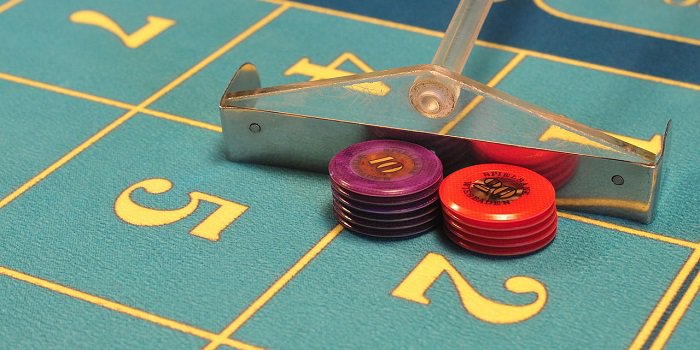A Trip Back In Time: The Roulette
Posted: July 4, 2015
Updated: October 6, 2017

Roulette is one of the most well-known and iconic games in the gambling business, but how did it evolve?
When I think of a casino, the image that immediately pops into my head is Casino Monte Carlo, with elegant people in refined clothes sipping champagne at the Roulette table. Which makes me wonder: where did the roulette actually come from? And how did it gain some much popularity in luxury casinos? What did it evolve from? Surely it wasn’t the same in the 18th or 19th century as it is now… Time to find out.
• Even-Odd or Roly-Poly?
• English or French?
• First evidence in 1745
According to Tradgames, the earliest known mention in historic documents of Roulette was in 1745, in the English Act Geo. 18. The phrase used in it is the following: “And whereas as certain pernicious game called Roulet or Roly-Poly is daily practised”… “no place shall be kept for the playing of the said game of Roulet or Roly-poly.” The next mention was in 1758’s New England (later known to us as Canada.) It is a kind of bill and of course, it prohibits the playing of dice, hoca, faro, and roulette.” So, they already had roulette by 1758 and it probably was quite popular if they had to take measures against it… I wonder what these people would have said if they saw some online poker sites in the US…
The “foreign game” of “Roulet”

As Tradgames states, a sporting magazine from 1808 said that “Roulet” was a “foreign game.” For a while, Roulette was replaced by E.O., or Even-Odd, a game with similar principles. It could easily be named the sibling of Roulette. It basically had the same principle: a wheel with one ball. Instead of numbers, however, they used 20 sections, each of them marked ‘”E” or “O” for – you guessed it – Even or Odd. E.O. cannot be considered an ancestor of Roulette, however, because there are no accounts of it coming well before Roulette. Another theory is that E.O. is in fact the Roulette’s ancestor, but it was named Roly-Poly.
Even the name “Roly Poly” is so awesome that I think gambling software developers should come up with a mobile casino app that is based on it. Roly-Poly was first mentioned in 1730 in a letter from a Countess basically gossiping about someone else’s gambling addiction: “the Duchess of Marlborough takes to losing her money at roly-poly.” The problem here, however, is that we get no information on how the game is played. So, we have to go further, to a book published in 1824, titled “The Fatal Effects of Gambling.” It was a section dedicated to Roly Poly: “Description of the newly introduced game of Roulette or Roly Poly.”
Roly-Poly equals Even-Odd?

In “Amusements of London,” Boulton insinuates that Roly-Poly and E.O. might be the same, but there is no real evidence that could attest to this. We know, however, that Roly-Poly was banned in 1745 and in order to get around the prohibition, people started playing E.O. Due to the ban, by 1800, according to Tradgames, Roly-Poly was forgotten and E.O. took its place. It lost popularity as quickly as it gained it, because when Roulette popped up in 1875 again, E.O. was quickly forgotten. Unfortunately, the history on which came first is too muddled up to be able to determine the exact origin of Roulette.
There seems to be some kind of a consensus, however, on the Roulette’s country of origin. Everything points towards it coming to England from France. Even the name, “Roulette,” means “small wheel” in French. No wonder the Casino Monte Carlo pops into my mind when I think of the Roulette; it is only a couple of kilometres away from the Cote D’Azure! On the other hand, some people say it is inherently English (like some of the best mobile betting sites,) or Italian. The fragments of evidence supporting these theories, however, are not that convincing. At all.
















